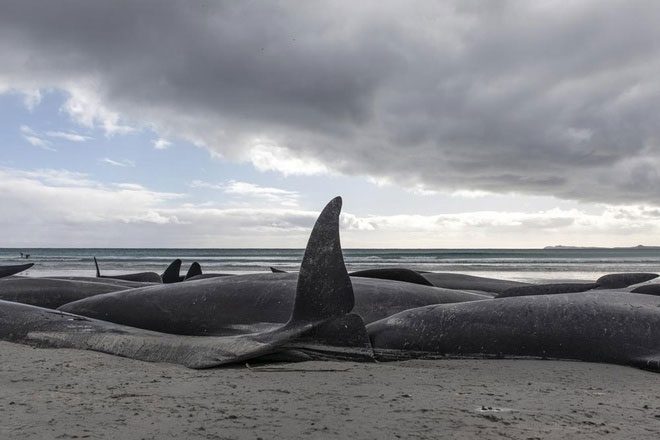Researchers have discovered that three stranded dolphins in Scotland exhibit brain abnormalities characteristic of Alzheimer’s disease in humans.
While various types of dementia have been widely identified in other animal species, Alzheimer’s disease has not been documented in any other natural species besides humans.

Researchers recently found three dolphins with brains similar to those of humans suffering from Alzheimer’s. (Photo: New Atlas.)
Therefore, researchers in Scotland were surprised after examining 22 beaked dolphins. They discovered that three individuals showed brain changes associated with Alzheimer’s symptoms (the most common form of dementia) in humans, according to a report by the Guardian.
The three dolphins included white-beaked dolphins, bottlenose dolphins, and long-finned pilot whales (which are also part of the dolphin family). According to the article published in the European Journal of Neuroscience, all three individuals were older than their species counterparts and exhibited three brain characteristics similar to those found in humans with Alzheimer’s disease.

A pod of pilot whales stranded along Tupuangi Beach, New Zealand, on October 8. (Photo: AP).
Dr. Mark Dagleish, the lead researcher, did not confirm whether the brain damage in dolphins could lead to cognitive decline similar to Alzheimer’s in humans. He stated that determining this would require studying each individual while they are still alive.
“These are significant findings, as this is the first time pathological characteristics in the brains of stranded beaked dolphins have been observed that are similar to those in humans with Alzheimer’s,” Dr. Dagleish said, according to Neuroscience News.
Some mass stranding events are linked to increased noise pollution caused by humans in the oceans. However, the presence of Alzheimer’s-like symptoms in dolphin brains has also reinforced the “sick leader” hypothesis. This theory suggests that healthy mammals may strand themselves while attempting to follow a disoriented leader.


















































